International organizations play a crucial role in fostering global cooperation, peace, and sustainable development. With over 300 intergovernmental organizations worldwide, many have been instrumental in facilitating collaboration among states on key global issues such as climate change, human rights, international trade, terrorism, and economic growth.
In this article, we will provide a comprehensive list of international organizations, highlighting their significance, roles, and contributions to addressing pressing challenges.
This Blog Includes:
- List of Top International Organizations
- 1. United Nations Organization (UN)
- 2. United Nations Children’s Fund (UNICEF)
- 3. World Health Organisation (WHO)
- 4. World Economic Forum
- 5. International Monetary Fund (IMF)
- 6. World Bank
- 7. World Trade Organization
- 8. United Nations Education Scientific & Cultural Organization (UNESCO)
- 9. South Asian Association for Regional Cooperation (SAARC)
- 10. Association of South East Nations (ASEAN)
- 11. Organization for Economic Cooperation & Development (OECD)
- 12. Asian Infrastructure Investment Bank (AIIB)
- 13. New Development Bank (BRICS Development Bank)
- 14. Asian Development Bank (ADB)
- 15. World Wide Fund for Nature (WWF)
- FAQs on International Organisations
List of Top International Organizations
International organizations are essential in addressing global challenges, fostering cooperation, and promoting development across countries. They work across various sectors such as health, education, finance, trade, and human rights, aiming to create a more interconnected and peaceful world.
Below we have given a list of international organizations highlights their key functions, and headquarters. From the United Nations to the World Trade Organization, each organization has a unique mandate that contributes to international peace, security, economic growth, and social well-being. Please have a look!
| International Organisation | Function | Headquarters |
| United Nations | Promotes peace, security, and cooperation among countries | New York, USA |
| International Monetary Fund (IMF) | Promotes international monetary cooperation and financial stability | Washington, D.C., USA |
| World Health Organization | Coordinates international health efforts, sets standards for public health | Geneva, Switzerland |
| UNESCO | Promotes peace through education, science, culture, and communication | Paris, France |
| Association of Southeast Asian Nations (ASEAN) | Enhances regional cooperation and facilitates economic, political, and cultural integration | Jakarta, Indonesia |
| Organisation for Economic Co-operation and Development (OECD) | Promotes policies to improve economic and social well-being | Paris, France |
| South Asian Association for Regional Cooperation (SAARC) | Promotes regional cooperation and development in South Asia | Kathmandu, Nepal |
| World Bank | Provides financial assistance and advice for development projects | Washington, D.C., USA |
| World Trade Organization (WTO) | Oversees global trade rules and resolves trade disputes | Geneva, Switzerland |
| International Atomic Energy Agency (IAEA) | Promotes safe use of nuclear energy and ensures non-proliferation | Vienna, Austria |
| United Nations Industrial Development Organization (UNIDO) | Promotes industrial development for poverty reduction | Vienna, Austria |
| Asian Development Bank (ADB) | Supports development and poverty reduction in Asia | Manila, Philippines |
| OPEC | Coordinates and unifies petroleum policies among oil-producing nations | Vienna, Austria |
| African Development Bank (AfDB) | Provides financial support and policy advice for African development | Abidjan, Côte d’Ivoire |
| UNICEF | Provides humanitarian aid and focuses on children’s rights | New York, USA |
| International Telecommunication Union (ITU) | Standardizes and coordinates global telecommunication policies | Geneva, Switzerland |
| International Labour Organization (ILO) | Promotes labor rights and social justice globally | Geneva, Switzerland |
| Food and Agriculture Organization (FAO) | Works on food security, nutrition, and agriculture | Rome, Italy |
| World Wide Fund for Nature (WWF) | Works to conserve nature and reduce the most pressing threats to biodiversity | Gland, Switzerland |
| United Nations Population Fund (UNFPA) | Focuses on reproductive health and population development | New York, USA |
| Universal Postal Union (UPU) | Coordinates international postal services | Bern, Switzerland |
| International Maritime Organization (IMO) | Regulates shipping and maritime safety | London, UK |
| International Committee of the Red Cross (ICRC) | Provides humanitarian aid and protection to victims of armed conflict | Geneva, Switzerland |
| Organisation for the Prohibition of Chemical Weapons (OPCW) | Enforces the ban on chemical weapons and promotes disarmament | The Hague, Netherlands |
| International Organization for Standardization (ISO) | Develops international standards for various industries | Geneva, Switzerland |
| Commonwealth of Nations | Promotes international cooperation and economic development | London, UK |
| United Nations Development Programme (UNDP) | Focuses on global development and poverty reduction | New York, USA |
| International Fund for Agricultural Development (IFAD) | Focuses on rural poverty and agricultural development | Rome, Italy |
| International Civil Aviation Organization (ICAO) | Sets international standards for aviation safety | Montreal, Canada |
| World Intellectual Property Organization (WIPO) | Protects intellectual property globally | Geneva, Switzerland |
| World Meteorological Organization (WMO) | Provides global leadership on weather, climate, and water issues | Geneva, Switzerland |
| UN Women | Works on gender equality and women’s empowerment | New York, USA |
| United Nations Human Settlements Programme (UN-Habitat) | Promotes sustainable urbanization and human settlements | Nairobi, Kenya |
| UN Tourism (UNWTO) | Promotes sustainable tourism | Madrid, Spain |
| Organisation of Islamic Cooperation (OIC) | Promotes political and economic cooperation among Muslim countries | Jeddah, Saudi Arabia |
| Asia-Pacific Economic Cooperation (APEC) | Promotes free trade and economic cooperation in the Asia-Pacific region | Singapore |
| International Chamber of Commerce (ICC) | Promotes international business cooperation | Paris, France |
| New Development Bank (NDB) | Provides financial support for development projects | Shanghai, China |
| United Nations High Commissioner for Refugees (UNHCR) | Provides protection and aid for refugees and displaced people | Geneva, Switzerland |
| World Economic Forum (WEF) | Engages global leaders to address economic and social issues | Davos, Switzerland |
| International Union for Conservation of Nature (IUCN) | Works to conserve the environment and protect biodiversity | Gland, Switzerland |
| Indian Ocean Rim Association (IORA) | Enhances economic cooperation in the Indian Ocean region | Ebene, Mauritius |
| Amnesty International | Works to protect human rights worldwide | London, UK |
| United Nations Environment Programme (UNEP) | Promotes environmental sustainability globally | Nairobi, Kenya |
| International Telecommunications Satellite Organization (ITSO) | Oversees the operation of international satellite telecommunications | Washington, D.C., USA |
| International Mobile Satellite Organization (IMSO) | Regulates mobile satellite services | London, UK |
| Joint United Nations Programme on HIV/AIDS (UNAIDS) | Coordinates the global response to HIV/AIDS | Geneva, Switzerland |
| United Nations Office on Drugs and Crime (UNODC) | Focuses on drug control, crime prevention, and terrorism | Vienna, Austria |
| World Food Programme (WFP) | Provides food assistance in emergencies and promotes food security | Rome, Italy |
| International Organization for Migration (IOM) | Supports migrants and migration-related issues | Geneva, Switzerland |
| United Nations University (UNU) | Promotes global academic research and education on sustainable development | Tokyo, Japan |
Let’s discuss the top 15 international organisations one by one, along with their functions, headquarters, and leaders.
1. United Nations Organization (UN)
As the first on our list of international organisations, the UN is the most popular intergovernmental institute responsible for the prevention of war and conflict in the world. The United Nations (UN) is an intergovernmental organization whose mission is to ensure international peace and security, promote cordial relations between nations, promote international cooperation, and serve as a central focus for coordinating national efforts.

It is the world’s largest, most well-known, most widely represented, and most powerful intergovernmental organization. The United Nations is headquartered in New York City, on international territory, with main offices in Geneva, Nairobi, Vienna, and The Hague.
| Headquarter | New York, US |
| Established on | 24th October 1945 |
| Secretary-General | Antonio Guterres |
2. United Nations Children’s Fund (UNICEF)
Second, on our list of international organisations is UNICEF. UNICEF, or the United Nations Children’s Fund, is a United Nations organization that provides humanitarian and developmental aid to children around the world. With a presence in 192 countries and territories, the agency is one of the most well-known and well-known social welfare organisations in the world. Immunization and disease prevention are among UNICEF’s initiatives, as are HIV treatment for children and women, improving childhood and maternal nutrition, increasing sanitation, promoting education, and providing emergency relief in disasters.

| Headquarter | New York, US |
| Established on | 11th December 1946 |
| Current Head | Henrietta H. Fore |
3. World Health Organisation (WHO)
Next on our list of international organizations is WHO. The World Health Organization (WHO) is a United Nations specialized organization in charge of international public health. “The attainment by all peoples of the highest attainable degree of health,” declares the WHO Constitution, which sets the agency’s governance structure and ideals. It has six semi-autonomous regional offices and 150 field offices worldwide, with its headquarters in Geneva, Switzerland.

| Headquarter | Geneva, Switzerland |
| Established on | 7 April 1948 |
| Current Head | Director-General – Tedros Adhanom |
4. World Economic Forum
The World Economic Forum (WEF), based in Cologny, Canton of Geneva, Switzerland, is an international non-governmental organization (NGO) created on January 24, 1971. “Committed to improving the status of the world by engaging commercial, governmental, intellectual, and other leaders of society to influence global, regional, and industry agendas,” reads the WEF’s mission statement.
| Headquarter | Cologny, Switzerland |
| Established on | January 1971 |
| Current Head | Klaus Schwab |
5. International Monetary Fund (IMF)
The International Monetary Fund (IMF) is one of the most prominent international organization and thus on our list. It is a 190-country international financial institution headquartered in Washington, D.C. that works to promote global monetary cooperation, secure financial stability, facilitate international trade, promote high employment and sustainable economic growth, and reduce poverty around the world while relying on the World Bank for resources on a periodic basis.

| Headquarter | Washington, D.C., United States |
| Established on | 27 December 1945 |
| Current Head | Chief Economist – Gita Gopinath |
6. World Bank
Next on our list of international organizations is the World Bank. The World Bank is an international financial agency that lends and gives money to governments in low- and middle-income nations to fund capital projects. The International Bank for Reconstruction and Development (IBRD) and the International Development Association (IDA) are the two institutions that make up the organization (IDA). The World Bank Group consists of the World Bank and its subsidiaries.
| Headquarter | Washington, D.C., United States |
| Established in | July 1944 |
| Current Head | President of WV: David Malpass |
7. World Trade Organization
The World Trade Organization (WTO) is a multilateral organization that regulates and supports international trade. It began operations on January 1, 1995, as a result of the 1994 Marrakesh Agreement, which replaced the 1948-established General Agreement on Tariffs and Trade (GATT).
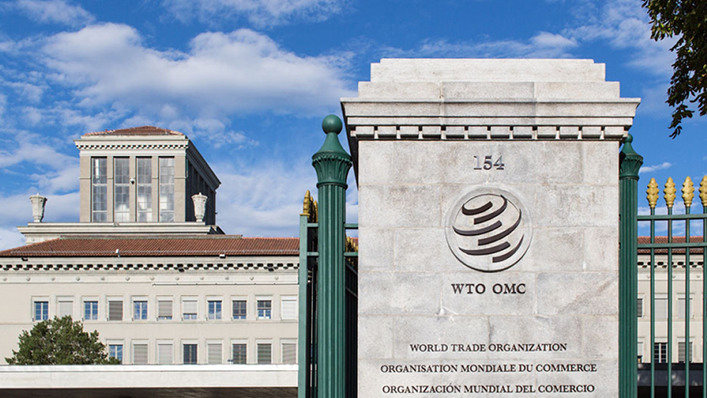
With 164 member states representing over 96 per cent of global trade and GDP, the World Trade Organization (WTO) is the world’s largest international economic organization.
| Headquarter | Geneva, Switzerland |
| Established in | 1 January 1995 |
| Current Head | Roberto Azevêdo |
8. United Nations Education Scientific & Cultural Organization (UNESCO)
The United Nations Educational, Scientific, and Cultural Organization (UNESCO, French: Organization des Nations Unies pour l’éducation, la Science, et la Culture) is a United Nations (UN) specialized agency charged with the duty of promoting world peace and security through international cooperation in education, science, and culture. It consists of 193 member states, 11 associate members, and nongovernmental, intergovernmental, and corporate sector partners.
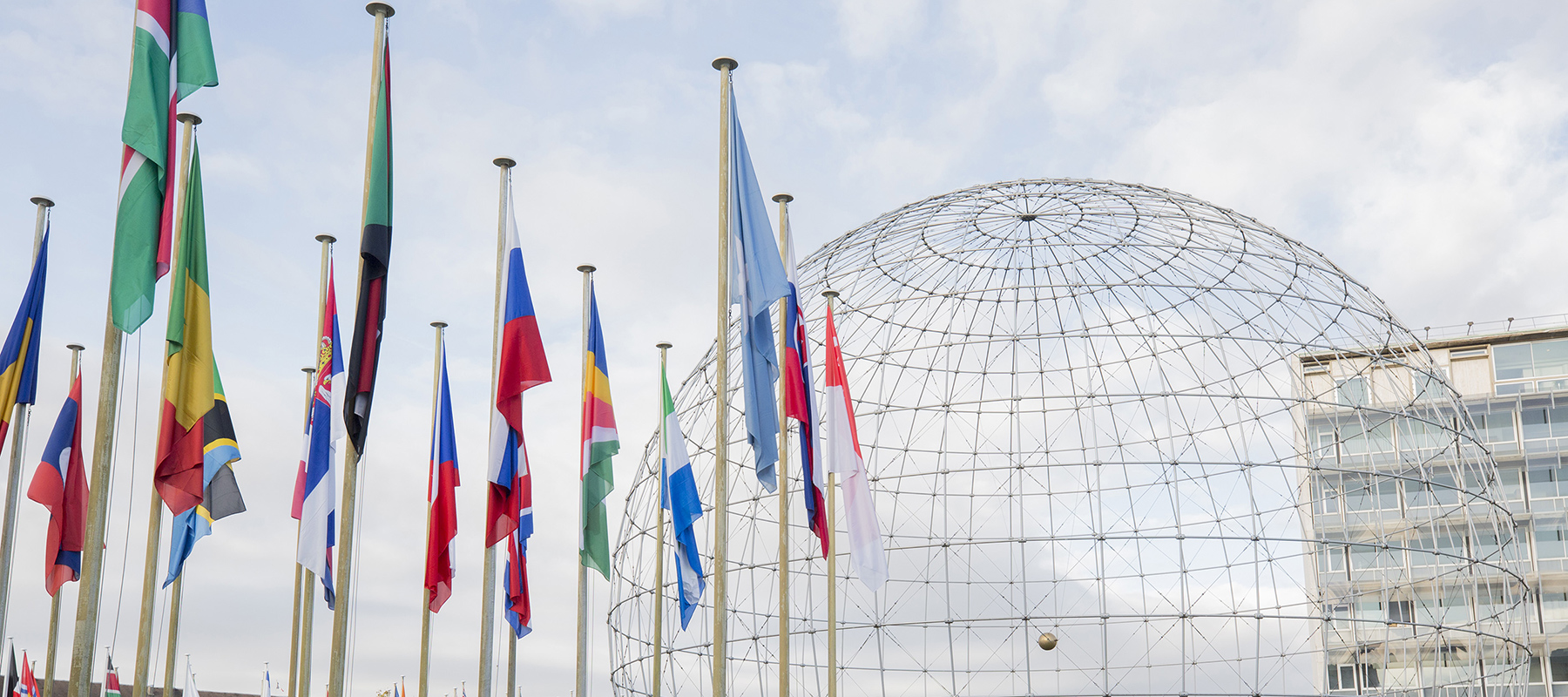
UNESCO is headquartered in Paris, France, and has 53 regional field offices and 199 national commissions to help it carry out its global mandate.
| Headquarter | Paris, France |
| Established in | 16 November 1945 |
| Current Head | Audrey Azoulay |
9. South Asian Association for Regional Cooperation (SAARC)
South Asia’s major intergovernmental organization and the geopolitical union are the South Asian Association for Regional Cooperation (SAARC). Afghanistan, Bangladesh, Bhutan, India, the Maldives, Nepal, Pakistan, and Sri Lanka are its members. As of 2019, the SAARC makes for 3% of the world’s land area, 21% of the world’s population, and 4.21 per cent (US$3.67 trillion) of the global economy.
| Headquarter | Kathmandu, Nepal |
| Established in | 8 December 1985, (in Dhaka, Bangladesh) |
| Current Head | Secretary-General – Esala Weerakoon |
10. Association of South East Nations (ASEAN)
ASEAN, or the Association of Southeast Asian Nations, is an economic union in Southeast Asia made up of ten member states that promote intergovernmental cooperation and facilitate economic, political, security, military, educational, and sociocultural integration among its members and other Asian countries.
The primary goal of ASEAN was to speed economic growth and, as a result, social and cultural development.
| Headquarter | Jakarta, Indonesia |
| Established in | 8 August 1967 |
| Current Head | Lim Jock Hoi Mon |
11. Organization for Economic Cooperation & Development (OECD)
The Organization for Economic Co-operation and Development (OECD; French: Organization de Coopération et de Développement Économiques, OCDE) is a 38-member intergovernmental economic organization formed in 1961 to promote economic advancement and global trade. As one of the most prominent international organizations on our list, the OECD is responsible for trade and economic activities. It is a forum of countries that identify themselves as committed to democracy and the market economy. It serves as a forum for members to share policy experiences, seek solutions to shared challenges, identify best practices, and coordinate their domestic and international policies.
| Headquarter | Paris, France |
| Established in | 30 September 1961 |
| Current Head | Angel Gurría |
12. Asian Infrastructure Investment Bank (AIIB)
The Asian Infrastructure Investment Bank (AIIB) is an international development bank dedicated to improving Asia’s economic and social conditions. Currently, the bank has 103 members and 21 prospective members from all around the world.
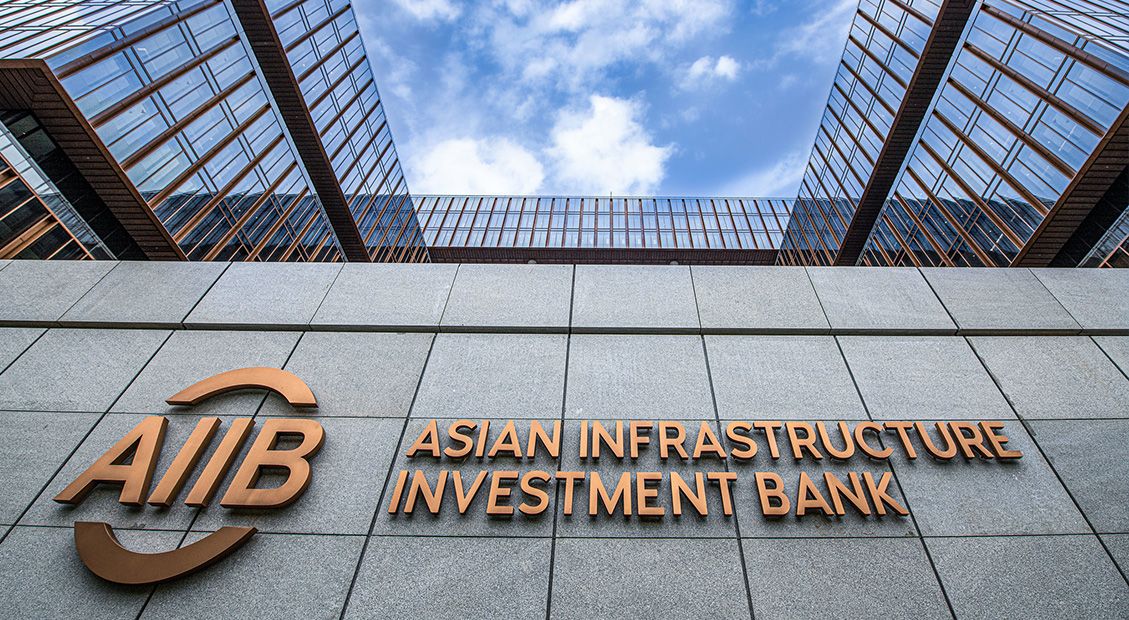
The bank began operations after the agreement went into effect on December 25, 2015, with ratifications from ten member states accounting for 50 per cent of the Authorized Capital Stock initial subscriptions.
| Headquarter | Beijing, China |
| Established in | January 2016 (began operations) |
| Current Head | Jin Liqun |
13. New Development Bank (BRICS Development Bank)
The New Development Bank (NDB), originally known as the BRICS Development Bank, is a global development bank founded by the BRICS countries (Brazil, Russia, India, China, and South Africa). “The Bank shall support public or private initiatives through loans, guarantees, equity participation, and other financial instruments,” according to the NDB Agreement.
| Headquarter | Shanghai, China |
| Established in | 15 July 2014 |
| Current Head | K. V. Kamath |
14. Asian Development Bank (ADB)
Next on our list of international organizations is ADB. The Asian Development Bank (ADB) is a regional development bank headquartered in the Ortigas Center in Mandaluyong, Metro Manila, Philippines. It was founded on December 19, 1966. In addition, the corporation operates 31 field offices around the world to promote Asia’s social and economic development.
| Headquarter | Manila, Philippines |
| Established in | 19 December 1966 |
| Current Head | Masatsugu Asakawa |
15. World Wide Fund for Nature (WWF)
Last on our list of international organizations is the WWF. The World Wide Fund for Nature (WWF) is an international non-governmental organization that seeks to preserve wilderness and reduce the human effects on the environment. It was created in 1961. The World Wildlife Fund was its last name, and it is still used in Canada and the United States.
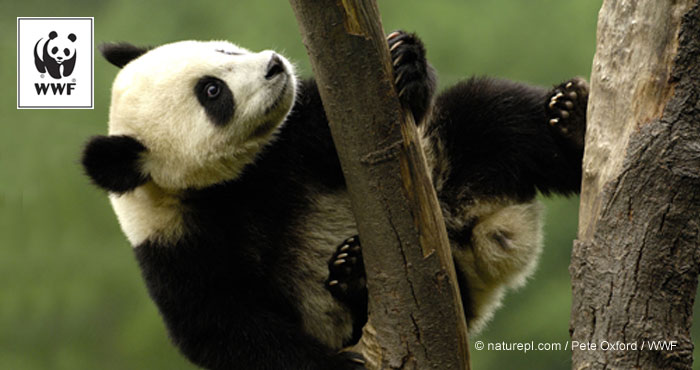
With over five million supporters globally, WWF is the world’s largest conservation organization, working in over 100 countries and supporting around 3,000 conservation and environmental projects.
| Headquarter | Gland, Switzerland |
| Established in | 29 April 1961 |
| Current Head | Carter Roberts |
FAQs on International Organisations
One of the Most Powerful Organizations in the World is the United Nations (UN).
The full form of UNICEF is the United Nations International Children’s Emergency Fund.
World Wide Fund for Nature was established in the year 1961 on 29th April.
The exact number of international organizations is challenging to determine as it depends on their classification. Broadly speaking, there are over 300 recognized organizations, including prominent ones like the United Nations (UN), the World Trade Organization (WTO) and more.
Some prominent examples of international organisations include:
United Nations Organization (UN)
United Nations Educational, Scientific and Cultural Organization (UNESCO)
World Health Organization (WHO)
United Nations Children’s Fund (UNICEF)
United Nations Population Fund (UNFPA)
Joint United Nations Programme on HIV/AIDS
United Nations Development Programme (UNDP)
International Labour Organization (ILO)
Food and Agriculture Organization (FAO)
International Fund for Agricultural Development (IFAD)
World Food Programme (WFP)
The United Nations (UN) system comprises various specialized agencies, each focusing on specific global issues. Here are the 15 specialized agencies of the UN:
United Nations Educational, Scientific and Cultural Organization (UNESCO)
International Civil Aviation Organization (ICAO)
International Fund for Agricultural Development (IFAD)
International Labour Organization (ILO)
World Health Organization (WHO)
World Bank Group (WBG)
World Intellectual Property Organization (WIPO)
World Meteorological Organization (WMO)
World Tourism Organization (UNWTO)
Food and Agriculture Organization (FAO)
United Nations Children’s Fund (UNICEF)
United Nations Development Programme (UNDP)
United Nations Population Fund (UNFPA)
International Telecommunication Union (ITU)
United Nations High Commissioner for Refugees (UNHCR)
International organizations are global entities formed by multiple countries to address common issues and promote cooperation. Some examples include:
United Nations (UN): Promotes peace, security, and human rights.
World Health Organization (WHO): Coordinates international public health efforts.
World Trade Organization (WTO): Regulates global trade and commerce.
International Monetary Fund (IMF): Provides financial support to member countries in need.
Each of these organizations serves a specific function, such as fostering peace, improving global health, facilitating trade, or ensuring financial stability.
The most powerful international organizations influence global policies, economics, and security. Some of the top organizations include:
United Nations (UN)
World Bank (WB)
World Health Organization (WHO)
International Monetary Fund (IMF)
European Union (EU)
World Trade Organization (WTO)
United Nations Security Council (UNSC)
North Atlantic Treaty Organization (NATO)
World Intellectual Property Organization (WIPO)
Organization of the Petroleum Exporting Countries (OPEC)
These organizations have significant influence on global governance, economic development, and international diplomacy.
International organizations play key roles in fostering global cooperation and addressing worldwide issues. Their primary functions include:
Promoting peace and security.
Addressing global challenges such as climate change, poverty, and health crises.
Facilitating trade and economic development.
Protecting human rights and providing humanitarian aid.
These organizations bring countries together to collaborate on solutions for global problems, ensuring a more interconnected and peaceful world.
Here are some well-known examples of international organizations and their functions:
United Nations (UN): Maintains international peace and security.
World Bank (WB): Provides financial assistance for development projects.
United Nations Educational, Scientific and Cultural Organization (UNESCO): Promotes global peace through education, culture, and science.
International Labour Organization (ILO): Ensures social justice and fair labor standards worldwide.
These organizations represent various sectors such as health, education, economics, and human rights.
International organizations are bodies formed by multiple countries to promote cooperation, address global challenges, and manage international relations. They can be either governmental (IGOs) or non-governmental (NGOs). Examples include the United Nations (UN) and the World Health Organization (WHO).
There are over 300 international organizations globally, including prominent ones like the United Nations (UN), World Bank, and International Monetary Fund (IMF). The exact number can vary depending on classification and scope, but there are many regional, global, and specialized agencies.
While both terms involve cooperation between countries, international organizations are specific entities with defined functions and structures, such as the United Nations (UN) or the World Trade Organization (WTO). In contrast, international institutions refer to established practices, rules, and norms that govern relations between countries, such as trade agreements or diplomatic treaties.
Some of the most influential international organizations include:
United Nations (UN): Addresses global peace, security, and development.
World Bank (WB): Provides financial and technical assistance to developing countries.
World Trade Organization (WTO): Regulates global trade.
International Monetary Fund (IMF): Supports global monetary cooperation and financial stability.
These organizations shape global policies, foster international relations, and drive economic and social development.
The purpose of an international organization is to provide a platform for countries to collaborate on global issues, develop solutions for shared problems, and promote peace, security, economic development, and human rights. These organizations work to maintain global order, address crises, and encourage cooperation across borders.
International organizations are crucial for fostering global cooperation, addressing shared challenges such as climate change, poverty, and health crises, and maintaining peace and security. They help countries work together, manage conflicts, and ensure global stability through diplomacy, aid, and collaboration.
This was all about the list of international organizations and their headquarters. Hope this was helpful. Good luck with your studies! If you want to get into your dream course in a high-ranked global university, you’ll need more than just good grades; you’ll also need flawless application because the competition is fierce. You may enlist the assistance of Leverage Edu specialists to assist you with the application process so that you can realize your goals. Call us immediately at 1800 57 2000 for a free 30-minute counselling session.
-
I use it as a source project. Thank you.
-
Thanks!
-
-
Thanks. Please add g20 organization.
-
Thanks for the suggestion.
-

 One app for all your study abroad needs
One app for all your study abroad needs


















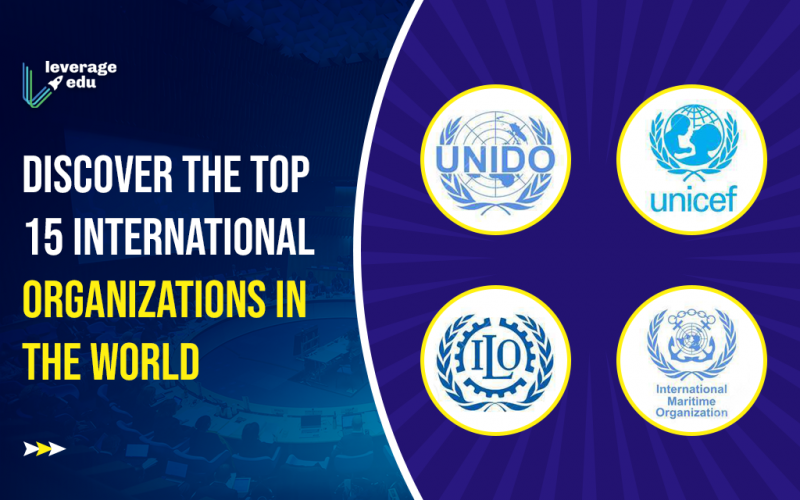


 45,000+ students realised their study abroad dream with us. Take the first step today.
45,000+ students realised their study abroad dream with us. Take the first step today.



9 comments
I use it as a source project. Thank you.
Thanks!
Thanks. Please add g20 organization.
Thanks for the suggestion.
Nice
Thanks for reading.
Also, check: International Day of World’s Indigenous Peoples
I would like to apperciate you for the best fund around the keep it and God bless you all thanks
Hi Buay,
Thank you so much for the lovely comment. We are thrilled to know that our blogs are proving out to be helpful for readers. For more updates and interesting reads, stay tuned with Leverage Edu.
So educative. Thanks